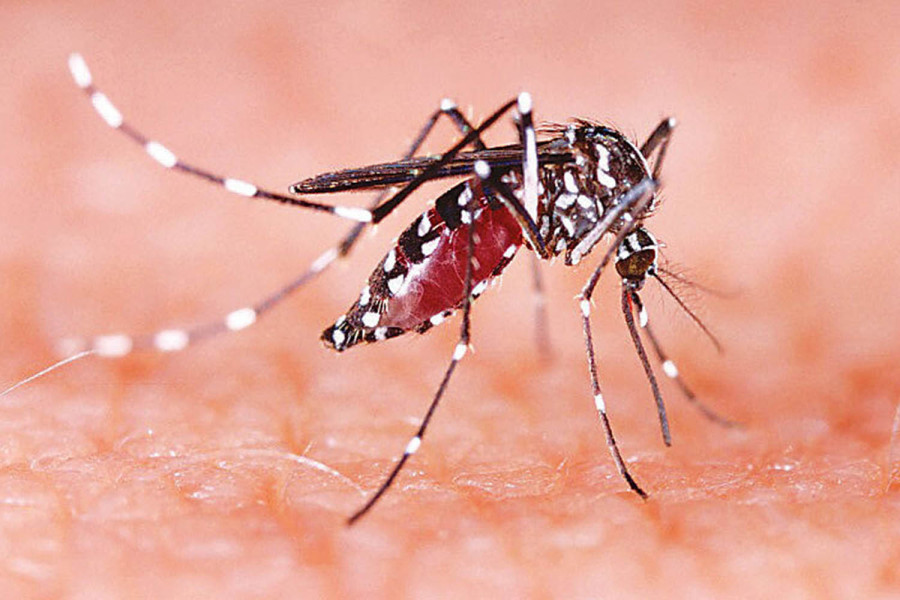Health
As dengue surge looms, authorities race to secure rapid test kits
Officials at Health Ministry say they have just 2,000 kits in stock and have urged provinces to secure their own supplies.
Post Report
Amid the risk of a sharp rise in dengue cases in the coming days, the Ministry of Health and Population is gearing up to purchase rapid diagnostic test kits.
Officials admit that they have only around 2,000 kits in stock, which is insufficient to carry out daily testing if cases spike.
“We have decided to purchase rapid diagnostic test kits worth Rs 1 million immediately for dengue testing,” said Dr Bikash Devkota, director general at the Department of Health Services. “We have also asked health agencies under provincial governments to purchase rapid diagnostic test kits on their own.”
Officials admit that the risk of an exponential rise in dengue cases has increased as the post-monsoon season, which is considered the peak dengue season, has just started, and the rainfall has not stopped. The recent disasters, which killed hundreds and displaced thousands, have also increased the risk of a surge in infections, experts say.
At least 246 people have been confirmed dead, while 19 others are still missing following floods and landslides triggered by record-breaking rainfall some 10 days ago. As many as 173 people have been injured, and more than 17,120 others were shifted to safety, according to Nepal Police.
“The risk of dengue infection has increased, as hundreds of displaced people are now living in temporary shelters, where water, sanitation and hygiene conditions have been compromised,” said Devkota. “Stored drinking water in these shelters could turn into breeding grounds for mosquitoes, the dengue vectors. We have alerted our health officials accordingly and asked them to launch an awareness drive in the high-risk areas.”
Dengue is a mosquito-borne disease transmitted by female Aedes aegypti and Aedes albopictus mosquitoes. The same vector also transmits chikungunya, yellow fever, and Zika viruses, according to the World Health Organisation.
At least seven deaths and 14,975 infections have been reported from 76 of 77 districts across the country since the start of monsoon this year. Experts say reported dengue cases could be just the tip of the iceberg, as around 90 percent of the infected people do not show any symptoms.
Health officials say that they have communicated to provincial health authorities to prepare for a possible surge in dengue cases in the coming days. But provincial health authorities have instead asked the federal government agency to purchase testing kits and supply them to the provinces.
“Some provincial health authorities have asked us to purchase dengue testing kits and supply them,” said Dr Yadu Chandra Ghimire, director of the Epidemiology and Disease Control Division. “But it is not possible for the federal government to purchase testing kits, which are required in huge quantities, due to budget constraints.”
Since there is no specific treatment for dengue, health workers provide symptomatic care and diagnose patients based on symptoms.
Of late, a surge in dengue cases has caused a critical shortage of blood in the Kathmandu Valley. The Central Blood Transfusion Service (blood bank) said that hospitals in the Valley have been facing a surge in demand for platelet-rich plasma and platelet concentrate due to the surge in dengue cases.
“The daily demand for blood and blood components is about 400 pints, but we have only been able to collect about 100 pints,” said Sanjeev Kumar Yadav, senior technical officer at the Central Blood Transfusion Service. “We urge everyone eligible to step forward and donate blood. We have been struggling to meet the demand, and families of critically ill patients are in a difficult situation as they can’t find blood.”
Officials attributed last week’s monsoon disaster and the start of the Dashain holidays to the decline in blood collection. They say the closure of colleges for the Dashain holidays, along with many offices and organisations suspending blood donation campaigns due to the festival, has led to a sharp drop in donations.
According to doctors, mild to high fever, severe muscle pain, rashes, severe headache, and pain in the eyes are some symptoms of dengue.
The World Health Organisation (WHO) says there is no specific treatment for severe dengue, but early detection and access to proper medical care can save lives.
Dengue is a mosquito-borne viral disease transmitted by female Aedes aegypti and Aedes albopictus mosquitoes. The same vector also transmits chikungunya, yellow fever, and Zika, according to the WHO.




 25.96°C Kathmandu
25.96°C Kathmandu














